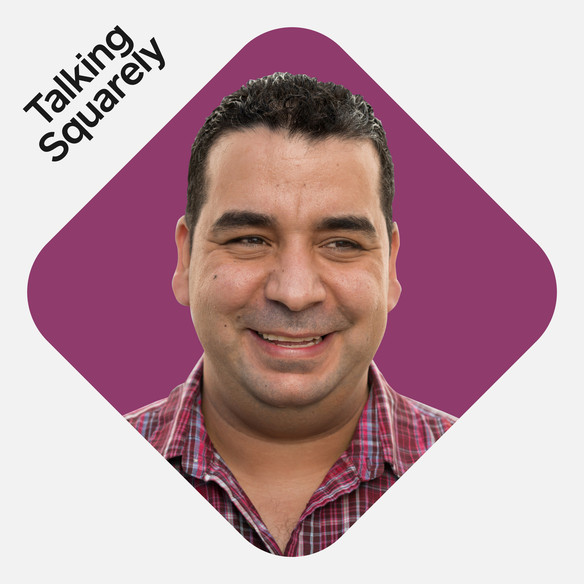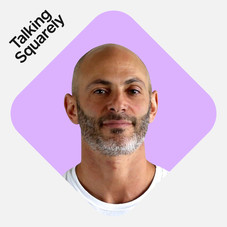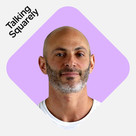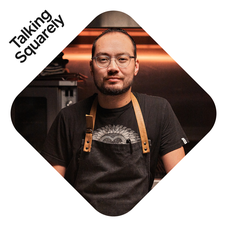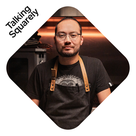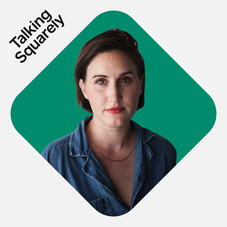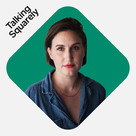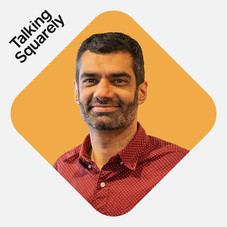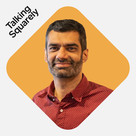Table of contents
A little bit about the episode and the socially responsible business owners featured…
In times of crisis, sellers are often motivated to help in whatever way they can. But, how can companies give back in times of financial struggle? We sit down with three socially responsible business owners to discuss the creative ways they are lending a helping hand to those in need and building up their communities.
This episode features Sam Shih, owner of 9Tailors in Boston, MA; Yassin Terou, owner of Yassin’s Falafel House in Knoxville, TN; and Lauren Crabbe, owner and CEO of Andytown Coffee in San Francisco, CA. Want to know a little bit more about our host? Follow Square’s Nelson Murray for more.
\It can be hard to do the right thing by your employees, your business, and your customers — especially during a time of crisis.
Some small business owners are making the hard choice to close their stores temporarily, pivot their business, or implement new protocols to keep their employees safe during the COVID-19 pandemic. Despite the odds, they’re making a positive impact by supporting their local communities.
For Yassin Terou, owner of Yassin’s Falafel house, “doing good” was an action early on as they saw a need for meals for children in schools after shutdowns began. “A lot of these kids [there] was a need for the lunch at the school, the low income community to the low income families, they depend their lunch at the school.” says Terou “We partnered with a local delivery company, saying if you still not have access to go to the school, we can send you, deliver a meal to you and for elderly people.”
“I sort of knew that we needed to do something to pivot our business because people weren’t going to be able to come into our showroom.” said 9Tailors owner Sam Shih “So about two weeks before we were actually closing, I approached our tailors who would normally be altering our suits and our shirts and things like that for our clients. I asked them to, ‘Would you be willing to make fabric face masks for our community?’”
This pivot not only created a resurgence in new business during a time where orders were slowing, but ultimately also allowed 9Tailors to donate masks to frontline workers in addition to selling them. Sometimes, pivoting isn’t the first option or an option at all.
“It’s coming down to me, like every time I’m at these crossroads in the past couple months, it’s like, how do we do the most good for the most people with this decision, with our limited resources, with this, whatever the situation is.” said Andytown Coffee owner and CEO Lauren Crabbe “Whether that’s creating more safety protocols in the shops or closing a shop or whatever, it’s been really difficult but as long as I’m coming back to that same question of, how do I do the most good?”

Full transcript below
Sam Shih:
I think there are a lot of sleepless nights for me in the beginning because I was just trying to create something new out of something that is terrible. What’s been happening is just a huge weight on your shoulders. I’m sure you’ve seen in, Lauren have employees who have families and you don’t want to let them down because they’re your family.
Nelson Murray (host):
I’m Nelson Murray and this is Talking Squarely. In this series, we bring together independent business owners to have frank discussions and share their perspectives on some of the most pressing issues impacting their lives and livelihoods.
The COVID-19 shutdowns have reshaped business practices across the world, but the impact of the crisis goes beyond economics. Across the US, critical resources tied to public infrastructure stopped. This put the communities that rely on these services at risk. Rather than sit on the sidelines, many local business owners have found creative ways of using their resources to meet these challenges. Today, we’ll hear from three business owners who saw an opportunity during the peak of the crisis to use their skills to do good in their communities.
Lauren Crabbe:
San Francisco is still very much in lockdown.
Nelson Murray (host):
That’s Lauren Crabbe. Her San Francisco based coffee business, Andytown Coffee, has been largely impacted by the coronavirus pandemic.
Lauren Crabbe:
We immediately lost about sixty to seventy percent of our wholesale, which was mostly in the large offices here in the Bay area. Yeah, we had to just basically shut everything down and it was completely devastating. I spent the first six years of my business just thinking about growth, and to immediately have to stop everything and shut more than half of my business down, it was completely devastating.
Nelson Murray (host):
In Knoxville, Tennessee, lighter restrictions have allowed Yassin Terou to keep his falafel house open.
Yassin Terou:
Business is moving, I think we … In Tennessee, in general, it’s a very bad situation, but in general, wasn’t very bad compared to other cities and states.
Nelson Murray (host):
North in Boston, Sam Shih anticipated a citywide lockdown and knew her tailoring business, 9Tailors, would need to adapt.
Sam Shih:
We decided our business is not suited for online purchasing because it’s so high touch and so customer service oriented. And not only that, we’ve provided this really beautiful space in Boston for people to come in. It’s really been quite alarming to me that I’ve had to sort of redirect a lot of plans because of what’s been happening.
Nelson Murray (host):
Yassin, Sam, and Lauren are embedded in their local communities. They don’t just provide food or clothing. They provide an experience, a sense of place. It’s not just about the sale. So when COVID threatened to take that away, they looked to find a way to still serve their community.
Today’s theme for the episode is the idea of doing good. Sam, can you define for us what that phrase, what doing good means to you?
Sam Shih:
I’ve always had a good sense of community and doing other things for others. But particularly in high school, I went to a school where their motto was non sibi, which is basically not for oneself. So this idea of giving time, energy, money has always been very important to me.
When we knew that we weren’t going to be able to provide suiting and shirting to our customers, we decided to, again, pivot our business to make a broader product, which is basically fabric face mass. That has really not only benefited the community but then also, it’s allowing people to understand that we’re not just about providing a luxury or near luxury good for people. It’s really allowing people to understand that we want to help and we have a desire to help and we want to make our community better.
Nelson Murray (host):
Lauren, how do you interpret that phrase? What does doing good mean to you?
Lauren Crabbe:
One of the core values of Andytown is using our economic impact for good. We’re trying to lift up other small businesses and working with vendors who share our commitment to sustainability and to doing good in their own community. It’s coming down to me, like every time I’m at these crossroads in the past couple months, it’s like, how do we do the most good for the most people with this decision, with our limited resources, with this, whatever the situation is. Whether that’s creating more safety protocols in the shops or closing a shop or whatever, it’s been really difficult but as long as I’m coming back to that same question of, how do I do the most good? How do I do the next right thing for not just myself and my business and the financial realities, but for the community, for my vendors, for everyone that Andytown touches?
Nelson Murray (host):
What does doing good mean to you, Yassin’s Falafel House?
Yassin Terou:
You need to build love and communication with your neighbors, with your community. That was one of the challenges when this pandemic happened because one of the things we are famous about is like, safer place to everyone. How we can be safer place to everyone when you cannot invite everybody you love to your dining room. You cannot have this people around you. So we started making free food for the people…as you know, I come from Syria, when overnight, a lot of people I know and even included my families, we lost everything. This is what’s happened in here overnight. It’s all on you to shut your business, to stay home.
Nelson Murray (host):
Can you talk to us a little bit about the specific things that you’re doing at your Yassin’s Falafel House right now, to give back to the community?
Yassin Terou:
As you know, schools ordered to close early this year on a lot of these kids was a need for the lunch at the school, the low income community to the low income families, they depend their lunch at the school. We’re going to get food for the kids, just come and pick it up. After that, hopefully that the school board decide they can give, even at the school close, they can come and pick up food for the kids. Now, we did move to other one. We partnered with a local delivery company, saying if you still not have access to go to the school, we can send you, deliver a meal to you and for elderly people. So now we … the talk is to start by saying the older people that are going to be affected so we need to get them home, so we changed that to the people who has all older age, we start sending them food home.
Nelson Murray (host):
For Lauren, doing something meant supporting the people in her community on the frontlines of the pandemic. And her solution, like Yassin’s, was close to home.
Lauren Crabbe:
We launched a program that we’re calling Coffee For Heroes, which allows our customers to purchase coffee and we will deliver the coffee in large scale. Within the first week, I think we had raised over $40,000 for healthcare hero deliveries.
Nelson Murray (host):
How has the coffee and other food items have been received by the healthcare workers you’ve been giving them to?
Lauren Crabbe:
Oh man, they are stoked. I get tagged at like two o’clock in the morning by the night shift nurses being like, “Thank you, Andytown,” like, taking a photo with their cold brew coffee. It’s been really cool to see the response. It’s something that I hesitate to take credit for because it is our customers who are spending the money and sending all of these, all of the coffee and pastries. It’s all our customers who are doing this.
Nelson Murray (host):
On the topic of healthcare workers and supporting them, Sam, 9Tailors started a program called Making The Thread Count. Is that right?
Sam Shih:
Lauren, that sounds amazing. I can’t imagine how many healthcare workers are just so appreciative of the food and the coffee and then just the love. I just love that. So for our 9Tailors, I sort of knew that we needed to do something to pivot our business because people weren’t going to be able to come into our showroom. So about two weeks before we were actually closing, I approached our tailors who would normally be altering our suits and our shirts and things like that for our clients. I asked them to, “Would you be willing to make fabric face masks for our community?”
One of my tailors, actually, she runs her own little business about south of the city. She actually noticed that she had not received any new work from any of her existing or returning customers since about mid-January to late January. So she was really looking for a form of income to sort of to supplement that loss. I was like, “You know what, let’s do this face mask program and we’d love for you to make children’s face masks for us.” Then we hooked up with another tailor who also was in a similar situation. We had the ability and the manufacturing ability and just the knowledge to do that and basically changed our business from suit making to fabric face mask making within about a week.
Part of our program is a donation program and part of it is for purchase, so if you’re somebody in the community that needs a face mass and you can purchase it. But part of it is also a donation. In total, we’ve been able to donate around 600 face mass to our community and to frontline workers and then also to people who are in need.
Nelson Murray (host):
Yassin, Lauren, and Sam quickly discovered they weren’t the only ones wanting to make a difference. Their communities just needed the opportunity to show up. And in Yassin’s case, that community support is nationwide.
Yassin Terou:
We have people who just came and throw money at us. It’s like, “Just get it, Yassin. Whatever you want to do with it, just do it.” They like give a tip of a hundred dollars. Or they go and just buy a t-shirt. I have someone in California, actually, where you guys are, she bought like, “Yassin, hey, I want to support you and give it for free.” So it’s like, yes, we are in the hard time, yes, we are in a challenge where we can’t get our stuff, but at the same time, I think this is what would show the community who you are. It’s not only when the time is easy, you give up. I think that the more vulnerable people who will give in the hard time, not when you have the extra and don’t need it. You want to do the right things, I think you need to share your own food if we need to, and I’m going to do it.
Lauren Crabbe:
I think, what resonated with me is like the community turns to small businesses like Yassin’s and like ours and like Samantha’s that, you know, we’re here in the community day in and day out in the good times and when things go bad, the community is trusting us to still be there. That’s been what has really propelled Andytown with this Coffee For Heroes program, is like, yes, we are fronting a lot of time and resources and everything else, but we’re willing to put up that and then our customers are taking care of the money piece.
Nelson Murray (host):
All three business owners tapped into their expertise to help their communities. As a result, those efforts have been key to keeping their staff employed and their businesses running. But making the changes has not been easy.
How is it that each of you are able to do these acts of good, to go above and beyond in a time where you must already be under immense financial and emotional stress?
Sam Shih:
Yeah. I think as a small business owner, you have a lot of responsibilities. You have responsibilities to your own customers. You have responsibilities to your team. I have a small team of seven in Boston who help run my business, and my first goal was, okay, I don’t want to lay anybody off. I don’t want to furlough anybody. That is a really, really hard decision for a lot of small businesses to make. I was like, okay, we need to think of another way to save our employees, save our tailors who haven’t had any work, and that was one of the reasons why we decided to pivot. The second, obviously, was that we really wanted to help our community with fabric face masks because there was such a shortage. We wanted to allow our healthcare workers to have access to N95s and KN95s and gowns and gloves and things like that, that they can’t get access to right now or there’s a shortage of. I mean, for goodness sakes, people in New York were wearing trash bags. But if we can make a small impact in our local community to provide PPE to our neighbors, our friends, and allow our healthcare workers to have the right products, I am more than happy to do it. I think that it’s the right thing to do.
Yassin Terou:
As I’ve said, one of the things was very hard is to let the people go, the people who you build and they … I have around 25 employees with me. Some of them like my babies, some of them are like 16 and 17 years old, and some of them like my brother and sister, we spent all this time together. It’s like, how I can let these people go? So it’s like, okay, we need to do something for them. In the same time, it’s like, again, I can’t let my community go when they need me.
Nelson Murray (host):
Lauren, how about you?
Lauren Crabbe:
What Yassin touched on as far as the employee retention was a huge motivator for me. Like I said, when we first got the shelter in place notice, we had to lay off about half of our staff. Trying to figure out how to get people back to work and also get people back to work safely was a huge stressor for us. One of the nice things about the Coffee For Heroes program is that the people that we were able to bring back, they were there brewing coffee, not talking to the public in a room. It was a nice way for us to bring people back in a really low risk way.
When you’re building a values focused business, which I think all of us have a values focused business, and when you think about all of the good that your business is doing, normally, like all of the coffee farmers that we support all over the world and all of … like our ceramicist that we buy ceramics from, and all of our customers here in the community who rely on us for that community space, I was like, “If I don’t figure out how to keep my business afloat right now, then every good thing that we do normally is going to stop.” When you’re making decisions in that mindset, I think it really shows your true colors as a person and as a business owner, where you see businesses like Yassin’s who’s able to feed kids who can’t afford lunch at school and businesses that are making face masks and doing all these things that are doing good in their communities. I think that it’s just been really uplifting to see how small businesses could pivot so quickly
Nelson Murray (host):
In many ways, small businesses like Yassin’s, Sam’s, and Lauren’s have become essential community leaders. Rather than close their doors and cut their losses, they have met the challenges of a pandemic world head on. Using their expertise, passion, and relationship to their neighborhoods, they have found ways to give back that help people and keep the lights on. It’s that unique connection that small businesses have to their communities that made this type of work possible. And the community has responded to these acts of kindness by paying them forward.
Special thanks to our guests, Lauren, Sam, and Yassin. To send coffee and pastries to a healthcare worker in San Francisco, visit andytownsf.com. Yassin’s Falafel House remains open in Knoxville, Tennessee. You can visit them online yassinfalafelhouse.com. And to purchase a 9Tailors fabric mask and contribute to Making The Thread Count, visit MTC9T.
Nelson Murray:
You’ve been listening to Talking Squarely, a Square Production. This episode was produced by Mallory Russell, Cindy Lewis, Alise Bailey, Kaitlin Keefer, Evan Grohl, John Scarpinato and Travis Gonzalez. Our music was composed by Jordain Wallace with sound recording by Mike Sorrentino and Jamie Cohen. I’m Nelson Murray, thank you for listening.
![]()

